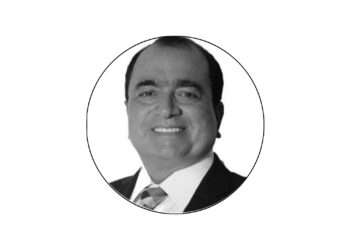If you pay attention, the main preoccupation of the scholars of our traditional schools of thought is to protect their respective sects. Consequently, their followers are usually those who are already religiously inclined. They lack the ability to appeal to those with a non-religious mindset.
Take a look at the famous social media accounts of the Deobandis, and you’ll find that all the followers are people with a pre-existing religious mindset. It’s like they are societies of like-minded people, more akin to mutual admiration clubs. They may be pleased that they have a large following, but the reality is that their message is not attracting any newcomers to religion.
Among the Deobandis, there was Maulana Tariq Jamil, who had a remarkable ability to influence non-religious minds and draw them towards religion. However, he suddenly developed a desire to become a “celebrity” rather than a preacher.
The principle of “actions are judged by intentions” applied here, and he became a celebrity. Now, his status in society is that of a celebrity like any other.
We don’t interfere with other schools of thought; that’s why I’ve used an example from my own sect. Others can assess the state of affairs within their own schools of thought, and they’ll find the situation is similar.
It is important to understand what the responsibilities of a preacher (da’i) are. Once that is clear, the work can be done in an organized manner. A preacher’s responsibilities are determined by his mindset and abilities.
For instance, one preacher may feel that the biggest effort should be made to convey the message of Islam to non-Muslims, which is the ultimate prophetic mission. So, he will assess whether he can engage with the intellectual level of non-Muslims in today’s world. Can he answer their questions? If he finds that he is capable of meeting the intellectual demands of this era, he will start working in that field.
Another preacher might be concerned that religion has been pushed out of people’s lives and that most have become nominal Muslims. So, he decides that his effort should be to make people’s mindset religious again. A third preacher might observe that a group has emerged within the Muslim community that recoils at the very mention of religion, believing that religiosity contradicts being “modern.”
Such a preacher will work to show them two things: first, that there is no real difference in mentality between them and the religious scholars they disdain. Both are spreading hate—one against the modern world and the other against religion. When a liberal is caught in some immoral act, the scholar says, “They are all like this,” and similarly, the liberal uses one incident of hypocrisy to condemn the entire religious community. When the mentality is the same, it doesn’t matter if you are on one side of the coin or the other.
The second thing the preacher will convey is that religion is more modern than scientific thought. For instance, the Big Bang Theory, discovered by science only 90 years ago, was described in the Qur’an 1300 years earlier. The same applies to the concept that life originated from water. So, in fact, religion is more modern.
These are three examples of the fields and priorities of preachers, and all are important. I don’t include those whose mission is merely to gather followers for their sect. I referred to them in the first paragraph, and there’s no doubt about the futility of their work. That’s why when one of them faced trouble recently, I stayed away from the entire issue.
Religious minds should understand that spreading hate based on sectarianism is very easy. For instance, to hate a Barelvi, all you need is the reason that they are Barelvi—nothing more. But we hold Mufti Muneeb-ur-Rehman and Mufti Akmal in the same regard as our own Deobandi elders.
If you ask why, our answer is that these two scholars embody a major collective tradition of the Prophets: the Prophets were never content with the state of affairs, no matter how religious society became. They always said that there was still much work to be done and room for improvement.
In an era where the culture of sects has become such that people say, “SubhanAllah, everything is flourishing in religion,” Mufti Muneeb and Mufti Akmal tell their own school of thought’s followers, “Fear God, you are distorting religion.
What you consider to be religiosity is nothing but superstitions. Break free from these superstitions.” Don’t you think it’s obligatory to love such scholars?
Dear one! There is a great opportunity for the arrival of a major preacher in this country—a preacher who is working on the grand mission of bringing non-Muslims to Islam.
He is a disciple of the legendary Sheikh Ahmed Deedat. Isn’t that enough reason to love him, given that he is a successor to the prophetic tradition of spreading the message of Islam? Here is a man bringing the message of faith to millions, and we are stuck debating trivial matters he may have said.
Mufti Muneeb and Mufti Akmal have also said things, but do we even point them out? Fix your mindset. If you focus on the negative, that’s all you’ll see. But if you adopt a positive attitude, you’ll prioritize the good in everything.
You’re not even considering that we’re not just failing to be religious, we’re failing to be decent human beings. We don’t even have the basic courtesy to think that in our culture, guests are honored, not humiliated.































